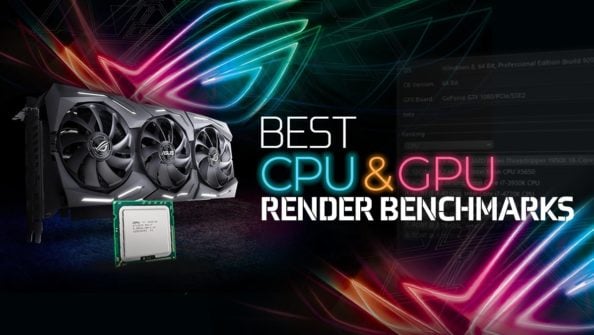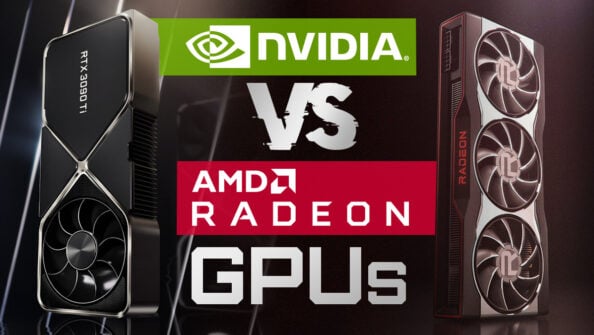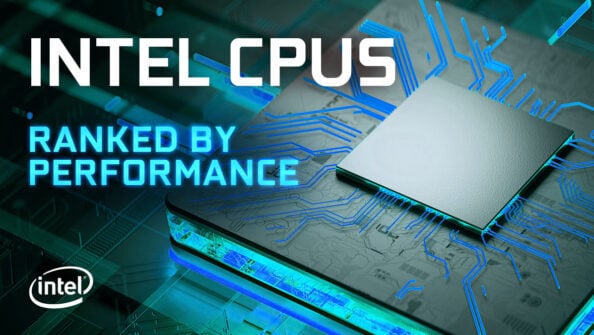Keeping track of modern Laptop CPUs’ performance and comparing them to their competition can be a frustrating endeavor.
AMD, Intel, and now even Apple are releasing new Laptop CPUs every couple of months, and the naming schemes and technical aspects certainly aren’t getting any less confusing.
Well, we’re here to help! 🙂
We’ve rounded up all modern and most popular Laptop Processors from AMD, Intel, and Apple, tested them, scored them, and ranked them in the below list for easy comparison:
Laptop Processors (CPUs) in Order Of Performance
▮ = AMD | ▮ = Intel | ▮ = Apple
| CPU Name | Single Core Performance | Multi Core Performance | Performance Total* |
|---|---|---|---|
| Intel Core i9-12950HX | 1927 | 23019 | |
| Intel Core i9-12900HX | 1902 | 18845 | |
| Intel Core i9-12900HK | 1938 | 18197 | |
| Intel Core i7-12700H | 1806 | 16745 | |
| Intel Core i9-12900H | 1917 | 16555 | |
| AMD Ryzen 9 6980HS | 1669 | 14736 | |
| AMD Ryzen 9 6980HX | 1669 | 14711 | |
| AMD Ryzen 9 6950HS | 1662 | 14670 | |
| AMD Ryzen 9 6950H | 1662 | 14670 | |
| AMD Ryzen 7 6800H | 1499 | 13611 | |
| AMD Ryzen 9 6900HX | 1662 | 14670 | |
| AMD Ryzen 9 6900HX | 1662 | 14670 | |
| AMD Ryzen 9 6900HS | 1579 | 13977 | |
| Intel Core i9-11980HK | 1574 | 13977 | |
| AMD Ryzen 9 5900HX | 1478 | 13875 | |
| AMD Ryzen 9 5980HX | 1524 | 13460 | |
| AMD Ryzen 9 5980HS | 1521 | 12844 | |
| Intel Core i9-11950H | 1574 | 12836 | |
| Intel Core i9-11900H | 1540 | 12354 | |
| Intel Core i7-11850H | 1517 | 12354 | |
| Intel Core i7-11800H | 1492 | 12180 | |
| AMD Ryzen 7 5800HS | 1339 | 10472 | |
| AMD Ryzen 5 5600H | 1370 | 10123 | |
| AMD Ryzen 7 5700U | 1274 | 9555 | |
| Intel Core i5-11500H | 1492 | 9532 | |
| AMD Ryzen 5 5600HS | 1342 | 9439 | |
| AMD Ryzen 5 5500U | 1165 | 6784 | |
| Intel Core i5-1185G7 | 1538 | 6264 | |
| Intel Core i5-1165G7 | 1504 | 6070 | |
| Intel Core i5-1135G7 | 1343 | 5913 | |
| Intel Core i7-11370H | 1517 | 5812 | |
| Intel Core i5-1145G7 | 1419 | 5059 | |
| Apple M1 | 1528 | 7799 | |
| Apple M2 | 1701 | 8538 | |
| Apple M1 Pro | 1543 | 12170 | |
| Apple M2 Pro | 1701 | 15248 | |
| Apple M1 Max | 1555 | 12422 | |
| Apple M2 Max | 1701 | 15248 | |
| CPU Name | Single Core Performance | Multi Core Performance | Performance Total* |
*Weighted. Total Performance (column) is relative to an Intel i7 11700k, weighed equally at 50% single-core and 50% multi-core performance. This weighing will indicate good all-round performance for most workloads.
Note: If you’re running very specific tasks, that you know demand, e.g., many cores, sort the table by multi-core performance. Or, if you’re certain your workloads only need high single-core performance, sort by that column.
Benchmark used for this list is Cinebench R23.
Also, check out our related Lists:
- AMD Desktop CPU List in order of performance
- Intel Desktop CPU List in order of performance
- List of Desktop CPUs with the highest single core performance
- List of Desktop CPUs with the highest multi core performance
- Nvidia Graphics Card List in order of performance
- AMD Graphics Card List in order of performance
What do these numbers mean?
So what can you do with these numbers?
First things first: The higher the score, the faster the Laptop CPU will be.
The scoring system is taken from one of the most popular CPU Benchmarks, Cinebench, in the current version R23, and this benchmark gives us two values: One for the Laptop CPU’s single-core performance and one for its multi-core performance.
In other words, in the first benchmark, only a single core (thread) is tested, and in the second part of the benchmark, all cores are tested simultaneously.
We use both of these scores, weighted at 50% each, to come up with a total performance, as can be seen in the right-most column. This weighing will indicate excellent “allrounder” performance.
Because we’re using a desktop-class Intel 11700k CPU as the comparison, anything above a 75 in the “Performance Total” column will give you excellent performance for all kinds of workloads in a mobile form-factor.
Below 75, you might encounter noticeable slowdowns in specific workloads, but more on workloads below.
Do I need high single- or high multi-core performance?
I already mentioned that the benchmark we use for our ranking is running two separate tests. One measures the performance of a single core (thread) of the CPU, and the other measures all cores simultaneously.
This is done to come as close as possible to different kinds of real-world workloads.
The following shows roughly what groups there are in the types of workloads and how well they use a processor’s resources:
- Workloads that can only use a single core / thread
- Workloads that scale across a couple of cores / threads
- Workloads that scale near perfectly over any amount of cores / threads
You see, some workloads just aren’t optimized for using multiple cores of your CPU. They are either not programmed in this way or can’t use more than one core for other reasons (dependencies, hierarchical chains, resource bottlenecks, etc.).
Other workloads, tasks, or Applications are suited to perfectly scale across numerous cores and fully use your CPU’s entire core pool.
Here’s a quick overview:
Workloads that are dependent on high single-core performance:
- PC Gaming
- Physics Simulation
- General Productivity
- Active work (interacting with a Software’s GUI)
There are exceptions to every rule, and depending on how you set up and optimize certain workloads, you might be able to parallelize specific tasks, but the above workloads tend to run better on CPUs that have a high single-core performance and won’t scale that well on CPUs with a lot of cores.
Here are some typical workloads that can easily be parallelized:
- 3D Rendering
- Video Encoding
- Batch processing
- Machine learning
What does H, G, and U mean in Laptop Processors?
Intel and AMD CPUs all have at least one letter trailing their SKU number, H, G, and U, which are easily explained.
- H means High Performance and goes hand in hand with higher power-draw
- U means Low Power, and the lower power-draw is reflected in lower performance
- G means the CPU comes with integrated Graphics. Such Laptops generally don’t have a dedicated GPU.
Although H-CPUs lack the letter G, most still have an iGPU.
Over to you
What kind of Laptop are you looking to buy? Let me know in the comments or ask us anything in our expert forum!
![Laptop Processors (CPUs) in Order Of Performance [Updated List] Laptop Processors (CPUs) in Order Of Performance [Updated List]](https://www.cgdirector.com/wp-content/uploads/media/2022/08/Laptop-CPUs-in-Order-of-Performance-List-Twitter-Kopie-1200x675.jpg)





2 Comments
23 August, 2023
What would you suggest for word processing, small amount of photo editing, con-ed (videos and download tests), small amount of gaming
25 August, 2023
Hello Shawne! What kind of gaming specifically are you interested in? Esports, or something more demanding? For everything else, a regular 11th Gen Intel Core i7-1165G7 will do the trick. It’s two years old almost, but it’s still a spectacular choice for everyday tasks. Its integrated GPU isn’t particularly impressive, so you might want to explore AMD’s Ryzen 6800U — its iGPU is essentially twice as powerful even in a 28W implementation.